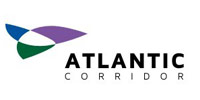RFC News
JOINT WORKING GROUP Ports & Rail TEN-T Intermodal Transport
On November 21st to 22nd, 2023, the Atlantic, Mediterranean and North Sea/Mediterranean Corridors of the Trans-European Transport Network promoted a joint workshop on the ports and railways covered by the 3 corridors.
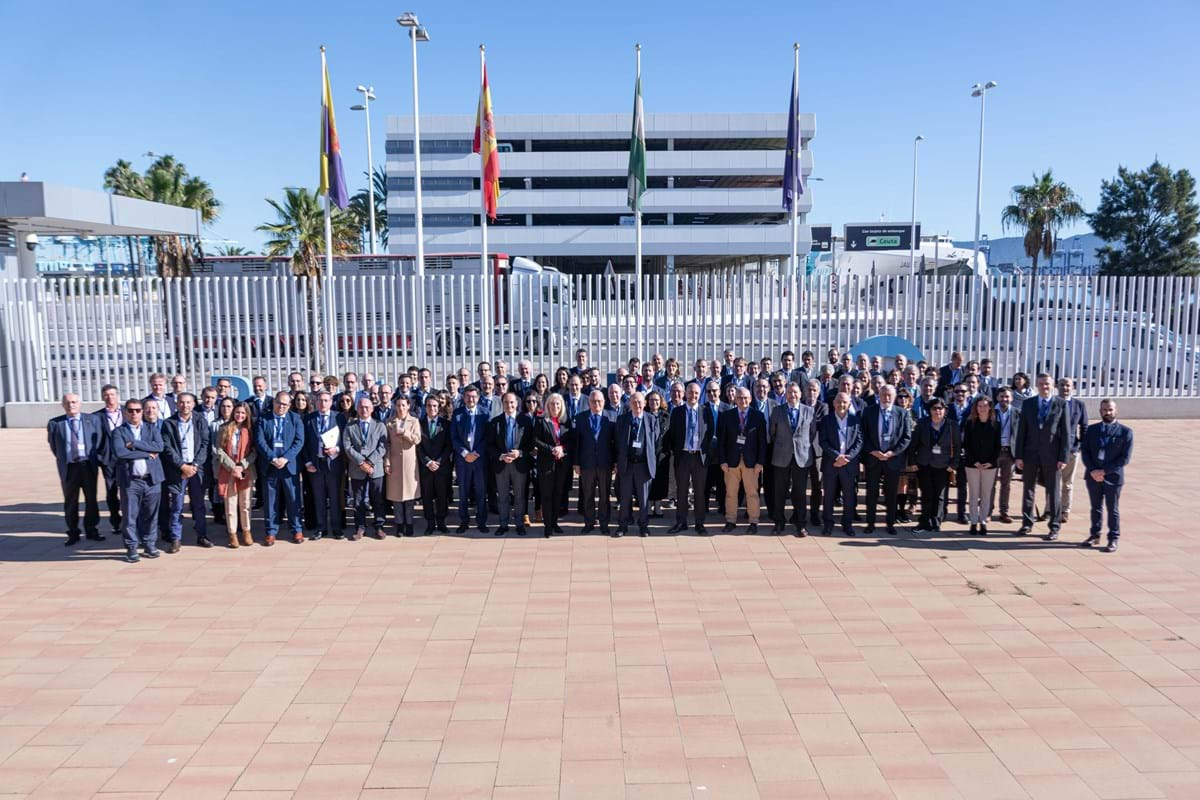
The Atlantic, Mediterranean and North Sea/Mediterranean Corridors of the Trans-European Transport Network promoted a joint workshop on the ports and railways, with the following agenda.

November 21st
On the 21st, the organization promoted a visit to the Lab Center in Córdoba, where the Freight Wagon System with Variable Axles – OGI was developed, where the ADIF R&D team gave a brief explanation of the project and clarified some of the participants' doubts. In 2015, ADIF began an R&D program for the development and approval of a new technical solution that allows the automatic change of gauge of freight wagons (variable gauge axle). Currently this program is called MERCAVE, a more detailed presentation of the project can be downloaded here.
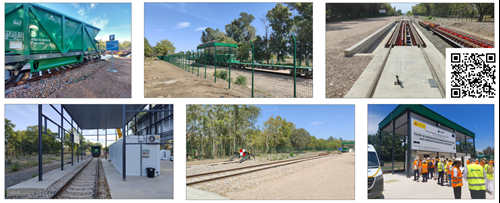
MERCAVE's main objectives are to achieve a complementary technical solution on routes or branches that require the assembly of a tripartite track, to reduce the transit time of cargo trains at the border with France (compared to current axle exchange operations or transfer of cargo between trains) and allow the permeability of operation of this type of freight trains, between networks of different gauges of the Spanish Railway Network.
The Córdoba Variable Gauge Technology Test Center (CETAV) is a new R&D facility developed in the MERCAVE Project for the installation of state-of-the-art interchangers and the development of gauge change tests with test wagons. The visit to the Lab Center ended with two tests of the OGI/MERCAVE system.
November 22nd
On November 22nd, with the support of the Port of Algeciras, the main event promoted by the organization took place, the Workshop on Ports and the Trans-European Transport Network Railway.
This Workshop aimed to identify the actions necessary for the full implementation of the TEN-T infrastructure requirements, which allow the circulation of freight trains for semi-trailer transport along the Mediterranean, Atlantic and Mediterranean Corridors of the North Sea. The main objective of this type of circulation is to contribute to the growth of intermodal traffic and promote modal transfer, by supporting the creation of railway highways on the main axes of the corridor.
The focus of this workshop was therefore to facilitate the exchange of best practices between interested parties, with regard to railway highways that cross the borders of the Member States of the 3 Corridors and the modal shift they potentially generate. Representatives from Spain, Portugal, France, Italy, Belgium, Luxembourg, the Netherlands and Germany were invited to share their experiences. The initiative aimed to bring together perspectives and knowledge, including ministries, railway companies, infrastructure managers, private operators and logistics players representing different modes of transport.
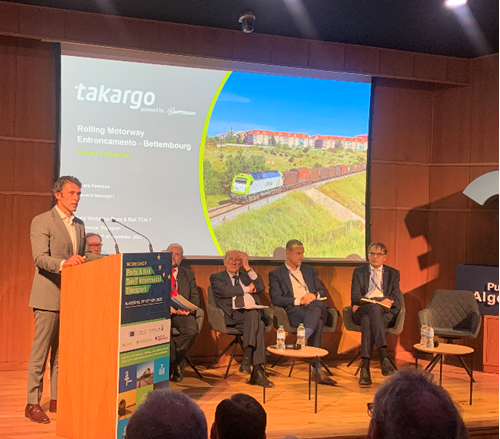
The workshop was organized in 3 sessions, the first on the P400 investment plan for Algeciras / Huelva-Seville – Zaragoza, moderated by the Coordinator of the Mediterranean Corridor - Iveta Radicova, the second on New industrial needs and new trade flows in accordance with geopolitics and climate crises, moderated by the Coordinator of the North Sea/Mediterranean Corridor - Péter Balázs, and the last session with the participation of the Portuguese railway operator – Takargo/Captrain Portugal, and addressed the Technical Specifications of the P400 template. This last session was moderated by the Coordinator of the Atlantic Corridor - Professor Carlo Secchi.
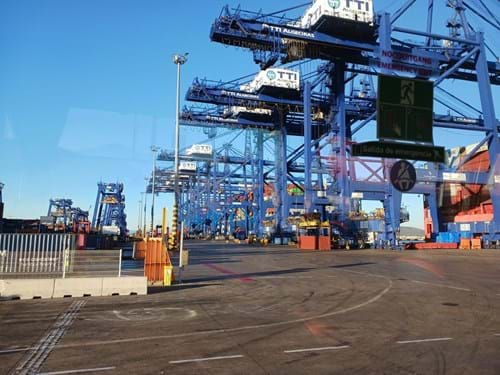
Day 22 ended with a visit to the Port of Algeciras.
